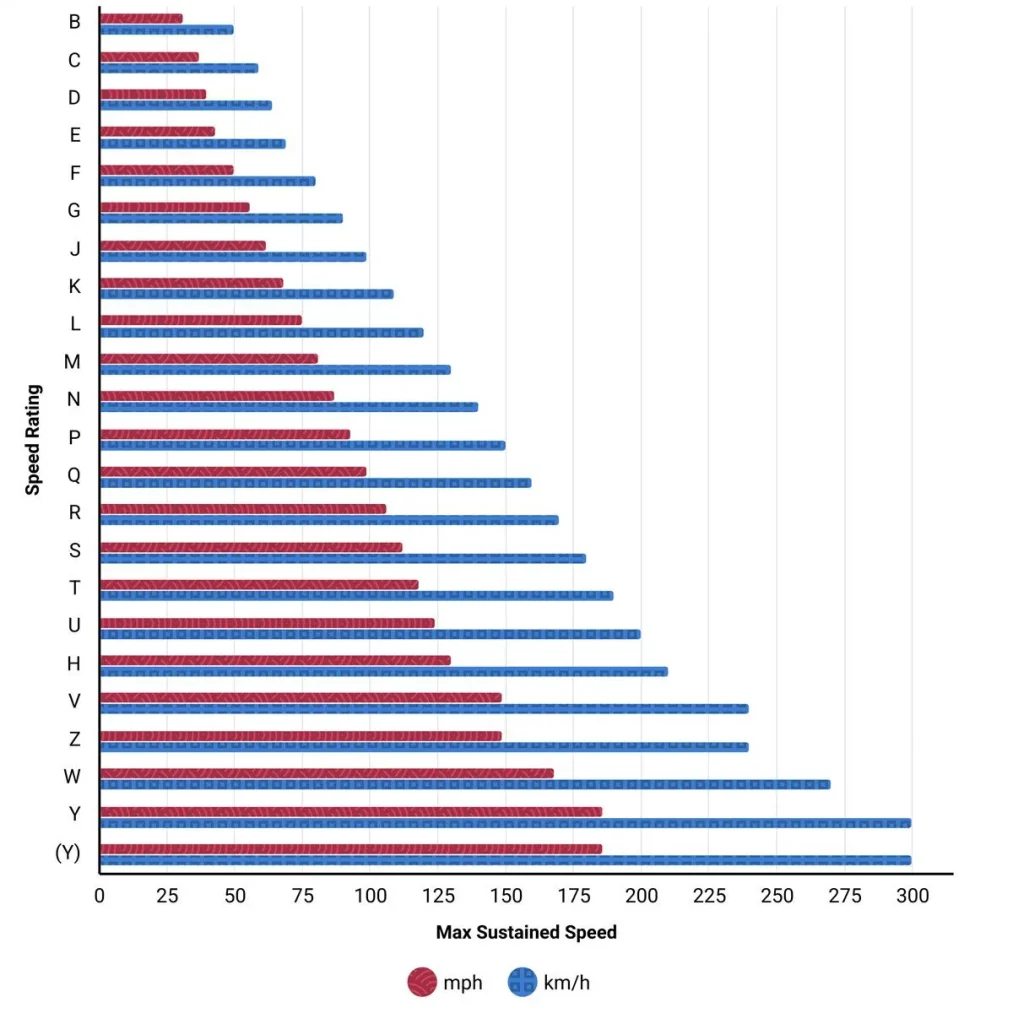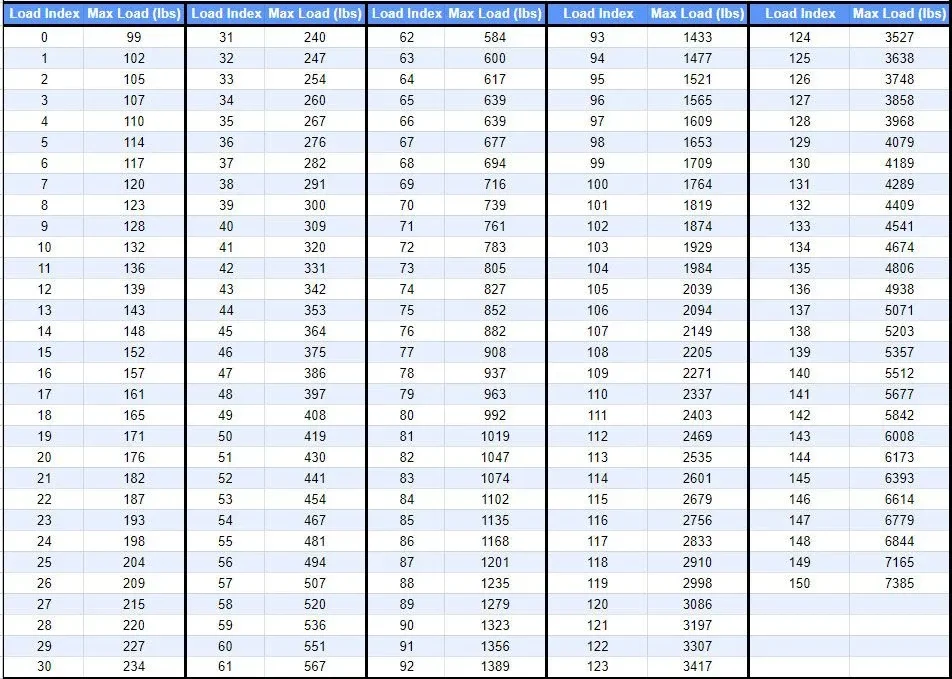Last Updated: January 14, 2025
Best Overall Run Flat Tire
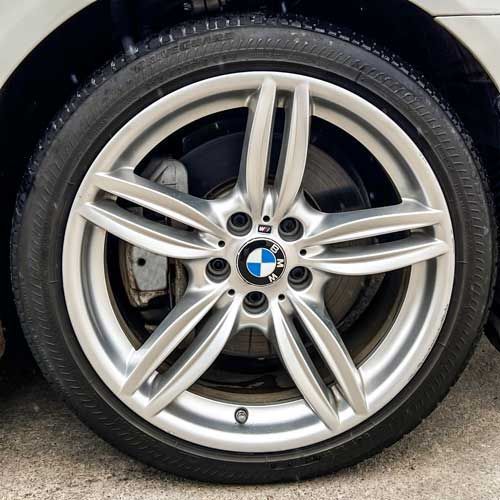
Bridgestone Driveguard
Cost: $120 – $310 per tire
Load Range: SL – XL
Features: Touring, All Season, Performance, Run Flat
Traction: A
Temperature: A
Weight: 23.0 Lbs – 45.0 Lbs
Warranty: 50,000 – 60,000 miles
Most Quiet Run Flat Tire
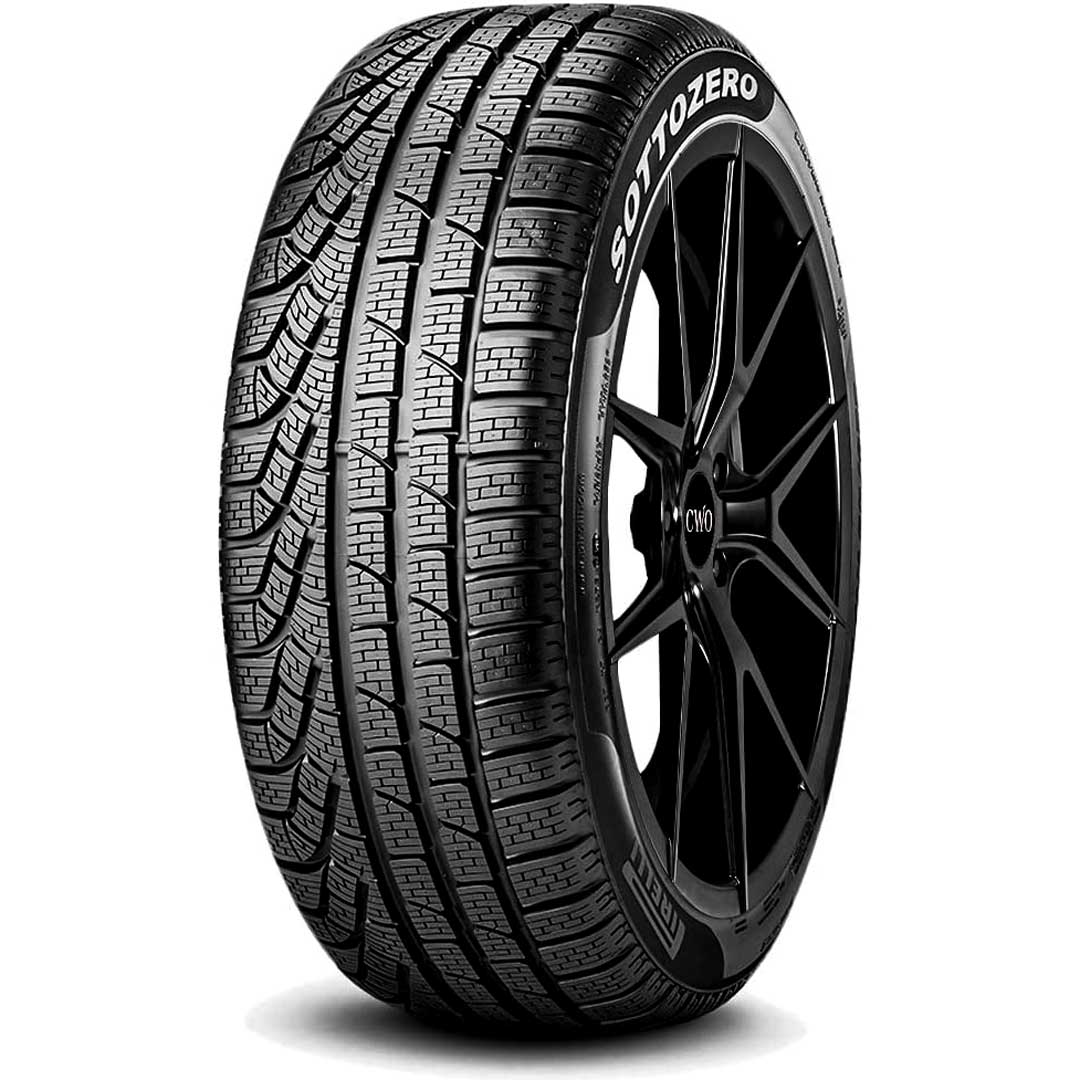
Pirelli Cinturato P7 All Season
Cost: $93 – $474 per tire
Load Range: SL – XL
Features: Touring, Summer, Performance, Run Flat
Traction: AA
Temperature: A
Weight: 18.0 Lbs – 36.00 Lbs
Warranty: 70,000 miles
Best Traction Run Flat Tire
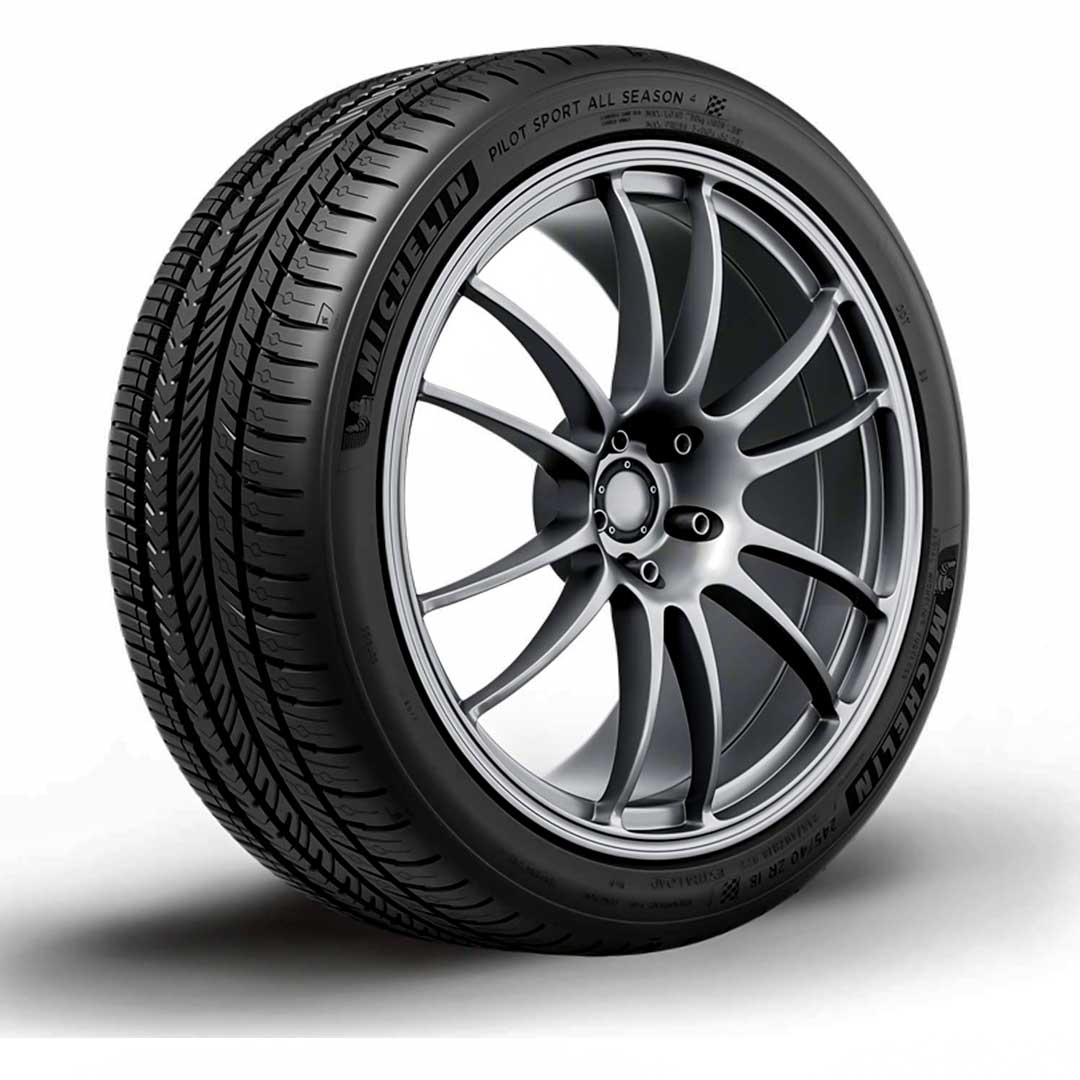
Michelin Primacy 3 ZP
Cost: $166 – $413 per tire
Load Range: SL – XL
Features: Touring, All Season, Performance, Run Flat
Traction: A
Temperature: A
Weight: 18.3 Lbs – 36.0 Lbs
Warranty: 30,000 – 35,000 miles
Top Run Flat Tires for BMW
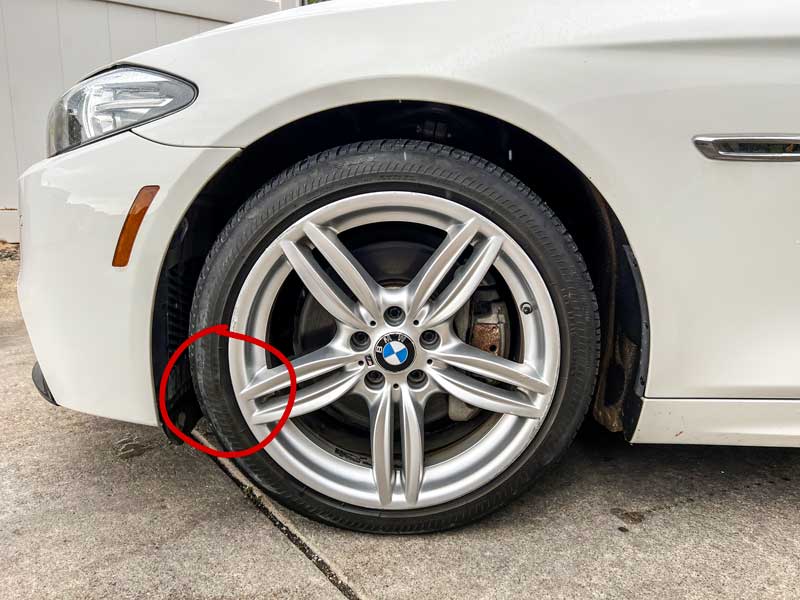
As you can see from the image above, I recently experienced some damage to my run-on-flat tire while enjoying the bumpy roads of Michigan. I noticed a big bump on the side of my tire, which aligned with my driver's side front tire losing air every few days. The good news is, after hitting a sharp pothole on the freeway, my tire didn't blow up. The bad news is, I need a new tire, and I didn't realize how expensive they are until I started researching them.
There are quite a few routes to take when it comes to replacing your run-on-flat tires. One of the cheaper routes for the time being is purchasing regular tires that are non run flats. There are a few reason for doing so is not just the fact that most are more than twice as cheap, but also the fact that regular tires last longer than RoF tires.
If the roads where you usually drive are pretty beat down like the ones in Michigan, run flats might be a good idea. However, you could increase the sidewall of the tires that are not run-on-flats to try to make up for the reliability of them. Higher sidewall will make it harder for your wheel to get damaged even if you hit a big pothole. That being said, there are trade-off for going either route.
However, the option of regular tires for your BMW will be covered in another article. In this article, I will be focusing only on the best run-on-flat tires for BMW and most likely other vehicles that I came across during my own research while shopping for my car. Let's get to it.
BWM Run-on-Flat Tires Overview
These tires are not new to the market, with history of them going back to 1930s. In 1934 Michelin released a tire that wasn't available to regular folks and was built for trains, trolleys, military equipment and specialized vehicles. Later on run-flat tires got into the general public and are used as alternatives to having to have a spare tire.
Since many BMW vehicles come with no spare tire, it makes sense why BMW is becoming the biggest proponent of run-flat tires, as they want to provide the best driving experience for their customers. Many of BMW cars are coming out of the manufacturing plant with run-flat tires put on. However, M model cars of BMW do not come with run-flat tires, but X5M and X6M do.
Here are a few disadvantages of run-flat tires when compared to conventional tires:
- Run-flats are heavier than normal tires, so it would not make sense performance wise or weight saving wise
- The sidewall is much less flexible making cornering not as efficient
- Much stiffer than regular tires and shorter tire life
- Stiffness of the tire also affects the comfortability while driving; bumps on the road are much more noticeable
- Not easy to replace if damaged due to the lack of their popularity amongst other brands, so some shops don't carry them at all. The good news is that in most cases, you will be able to get to a shop without needing to call a flatbed.
The best thing about running flat tires is that they don't require immediate replacement after a puncture, unless the puncture is extremely severe. While you'll need to replace or repair the punctured tires at some point, they can be driven between 10 and 50 miles at under 56 mph. They are also less likely to burst during a puncture than normal tires, making them safer than regular tires.
There aren't many good options for run-flats on the market right now. Of course, you can spend money on premium tires, but what if your older BMW needs some savings? I have created a list of BMW's top 11 best-run flat tires. Because BMW sedans use different tires than BMW SUVs and sports coupes, the list will be broken down into multiple categories.
Advantages and disadvantages of running flat tires
Run flat tires are not only heavier than regular tires, but they are also significantly more expensive and have other disadvantages that can make them a less desirable choice for some. Here's a complete list of their benefits and drawbacks:
Advantages of Run-Flat Tires for BMW
- After a single puncture, it can travel up to 50 miles at speeds of up to 56 mph.
- After your tire loses air, you can still make it to the closest shop unless you are in a very remote location. With conventional BMW cars you will either have to call a flatbed tow truck (no spare tire) or change the tire on the road, which might be unsafe.
- Run-flat tires are safer in a blowout or rapid loss of pressure because they have stiffer sidewalls. These can support the vehicle and allow the driver to react quickly to help them out.
- The vehicle's weight will be less if it doesn't have a spare tire (however weight savings will not be felt due to tires being heavier).
- A spare tire means more cargo space, which is always good.
Disadvantages of Run-Flat Tires for BMW
- Higher unsprung weight can affect some models' performance, dynamics, and fuel economy.
- Tires that are run flat have a shorter tread life than regular tires. However, the difference isn't significant – you get approximately 5,000 miles less from the same tire model.
- Run flat tires have a worse ride quality, especially when traveling at lower speeds and bouncing over small imperfections on the road.
- There are not many models that come in a run-flat version. If you choose to go run-flat, you might be disappointed by some of the great tires available from budget and premium manufacturers.
- Run-flat tires are more expensive. For a set of four tires, the price difference between a premium model and one made with stiffer sidewalls for run-flat tires is over $150. This is a huge deal for those who enjoy driving and don't have to worry about changing tires at the last minute.
Top 10 Best Run Flat Tires For BMW
Bridgestone DriveGuard – Best Overall Run-Flat BMW All-Season Tire
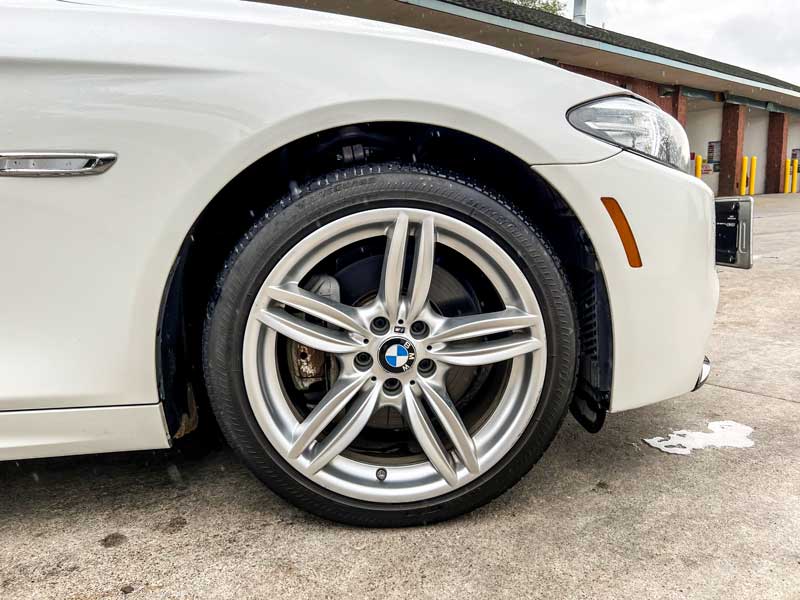
These tires have served me very well in all types of weather conditions. I have driven with them through snow, very heavy rain, and dry conditions. They performed extremely well and I do not recall a single issue at any conditions. After doing a lot of research on the tires, I am leaning heavily towards going with the same set of Bridgestone Driveguard again.
Pros
- Great grip and traction on both dry and wet surfaces
- Good ride quality
- Quiet ride
- Outstanding treadwear warranty
Cons
- Snow traction is slightly worse but not bad
Bridgestone's DriveGuard all-season grand touring tire provides safe and reliable driving. The tire can travel up to 50 miles without any pressure, which is quite normal. The DriveGuard is a great grand-touring tire on the roads. The DriveGuard also offers excellent grip and traction on wet and dry surfaces. The ride quality is excellent for a run-flat tire despite the stiffer sidewalls. There is also very little noise at highway speeds.
The treadwear warranty of H-, V, and T-Speed Rated models is 60,000 miles, and the warranty for W-Speed Rating is 50,000 miles. This warranty is among the best in the run-flat world. DriveGuard's only drawback is its slightly less effective snow traction.
To be completely transparent, I did change my Bridgestone DriveGuard tires into Michelin CrossClimate2 all-season tires. Reasons were fairly simple: better performance, lighter, plus I went with a higher sidewall to battle the risk associated with Michigan roads.
Pirelli Cinturato P7 Run Flat
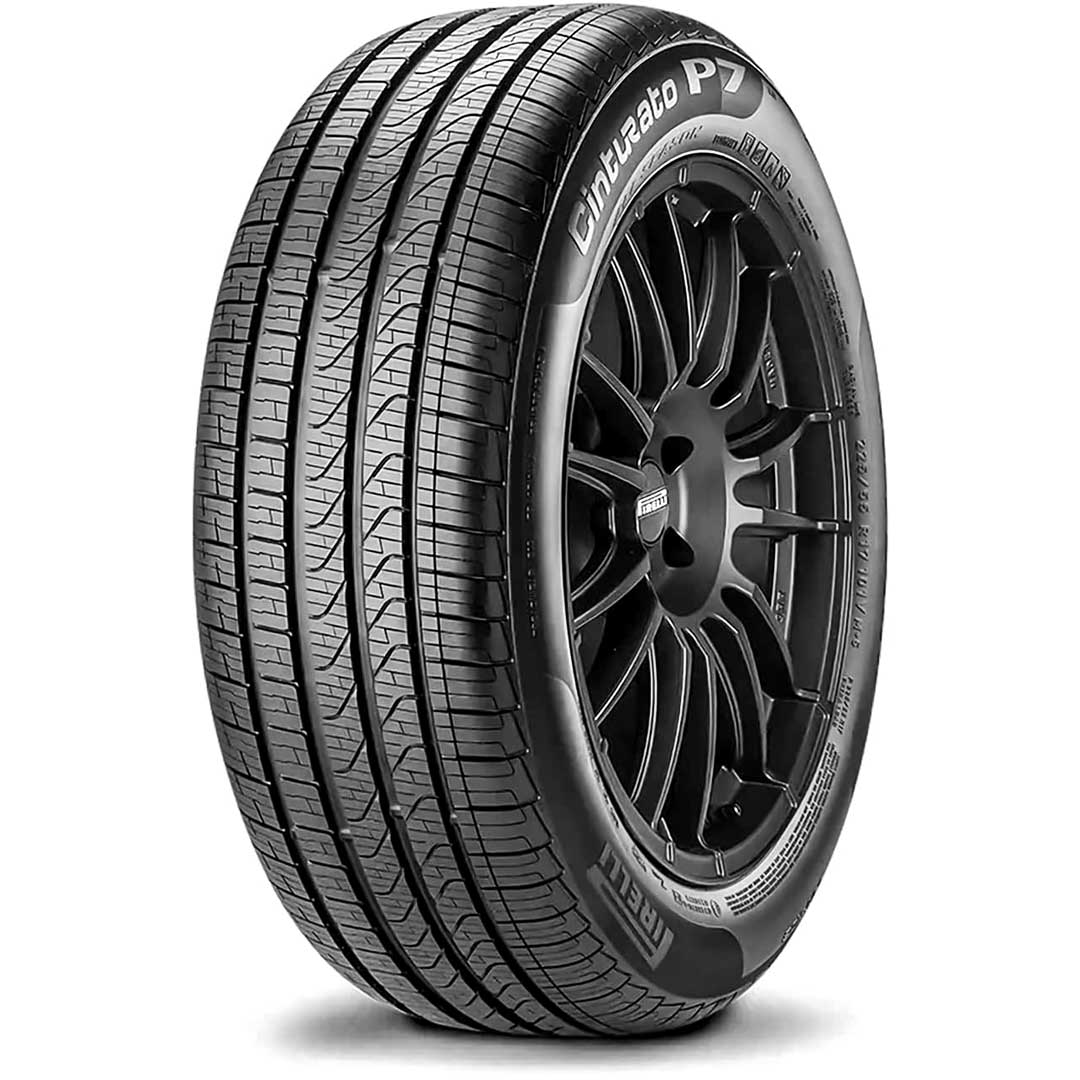
The all-season tire P7 RFT can be used on sedans and sports coupes. It provides excellent grip in wet and dry conditions and offers better fuel economy for everyday driving. In addition, Pirelli Noise Cancelling is an option that reduces noise by up to half.
Pros
- Great attempt at reducing road noise that run-flat tires are famous for with Pirelli Noise Cancelling System
- People are reporting that these tires are more comfortable than Continentals
Cons
- Based on reviews of people that have purchased these tires, it seems like they are prone to wear out quickly (15K-30K miles)
Pirelli's Grand Touring All-Season tire, the Cinturato P7 All Season, was designed for drivers of sedans and sports coupes. Pirelli's Green Performance approach has enabled the Cinturato P7 All Season to have a unique combination of quality that allows for driving pleasure, performance, and safety, as well as respecting the environment. The sidewalls of Cinturato All Season tires feature Pirelli Ecoimpact icons that highlight the tire's contribution to the environment in terms of energy efficiency, noise reduction, and long-lasting wear. The Cinturato All Season is for drivers who drive in America's diverse weather conditions, including light snow.
Michelin Primacy 3 ZP
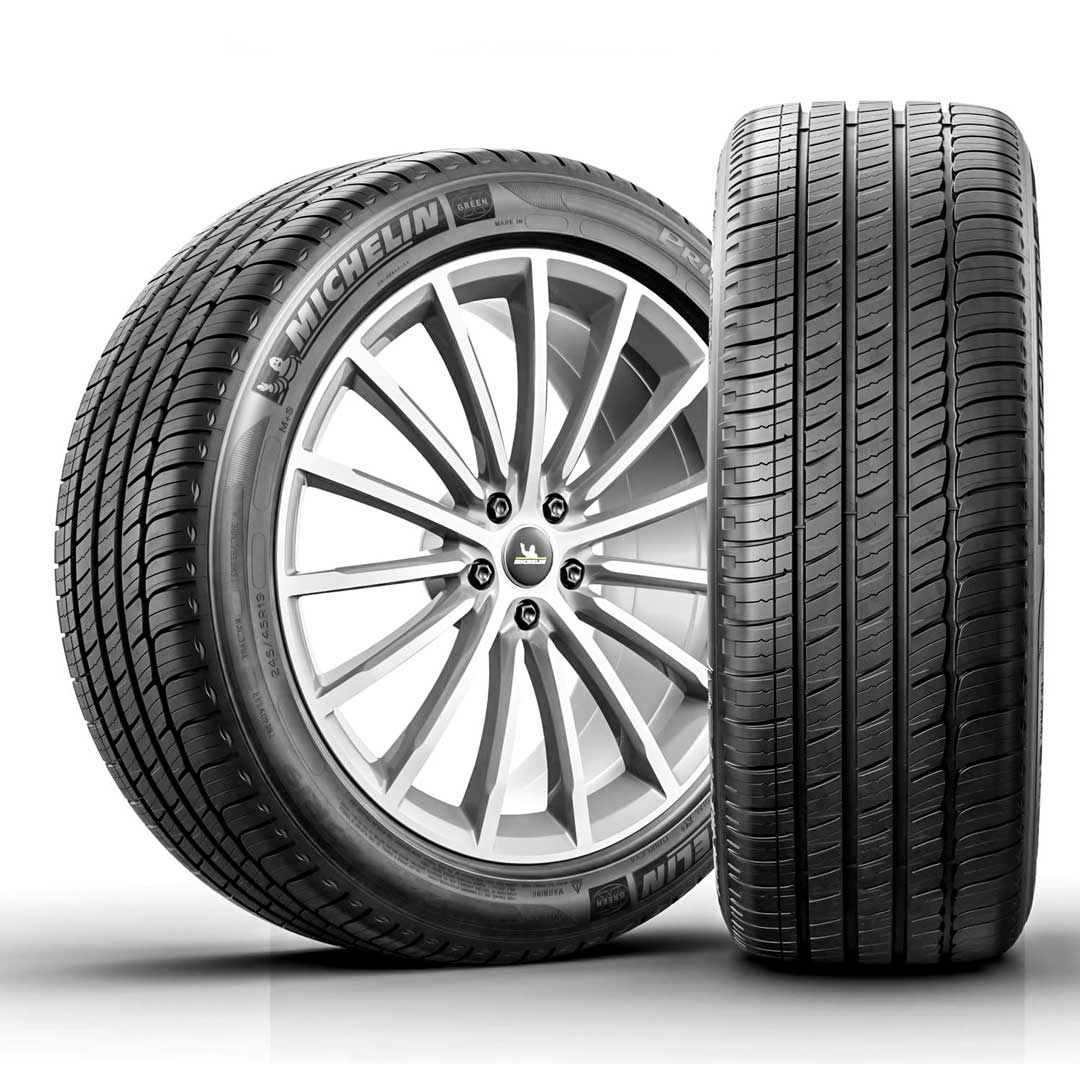
Primacy 3 ZP tires offer slightly better snow traction than DriveGuard. Therefore, this tire is recommended for those who live in areas that have harsh winters. The ride quality of the Michelin tire is slightly less than that of the DriveGuard. However, the noise level is nearly identical.
Pros
- Good grip and traction in both dry and wet conditions
- Excellent performance in the snow
- You can drive quietly
- Great reviews online
Cons
- Can get pricey will larger wheel size
Primacy 3 ZP gives the driver plenty of grip and traction on the road in dry and wet conditions. The Primacy 3 ZP's responsiveness is also excellent. However, the treadwear warranty on Bridgestone is slightly less than that of H- and V-Speed Rated models – 55,000 miles for H-, Y, & Z-Speed Rating models, and 45,000 for W-, J-, & Y-Speed Rated models.
Goodyear Eagle LS-2 ROF
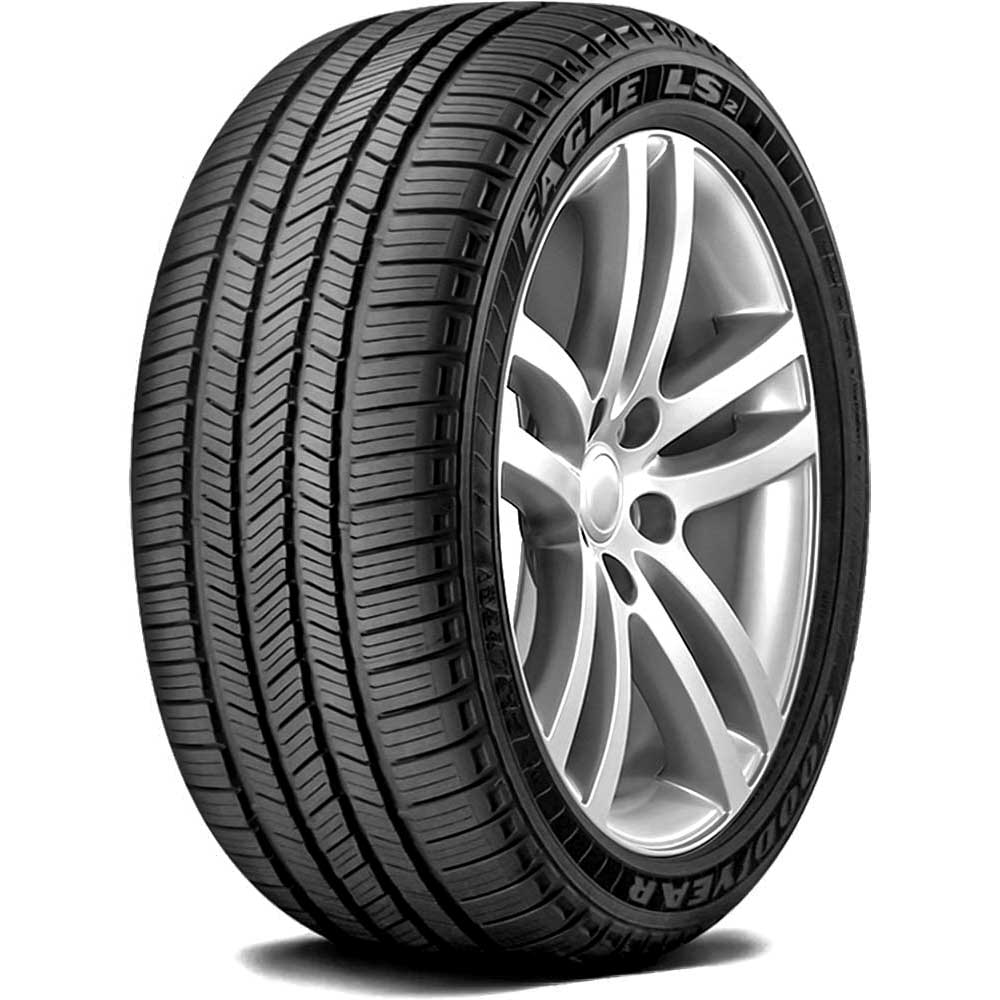
For BMW owners who want a more enjoyable driving experience, the Eagle LS-2 grand-touring tire is a great choice. This Goodyear competitor is responsive in corners and offers a lot of grip and traction in dry conditions. In addition, the tire's wet performance is excellent, as well as the tire's biting edges that provide light-snow traction.
Pros
- Amazing grip and traction
- Outstanding wet performance
- Quiet and comfortable
Cons
- No warranty for treadwear
It is very comfortable on bumpy roads and doesn't make much noise on the highway. Unfortunately, it doesn't have a treadwear warranty, which is unfortunate today.
Michelin Latitude Tour HP ZP
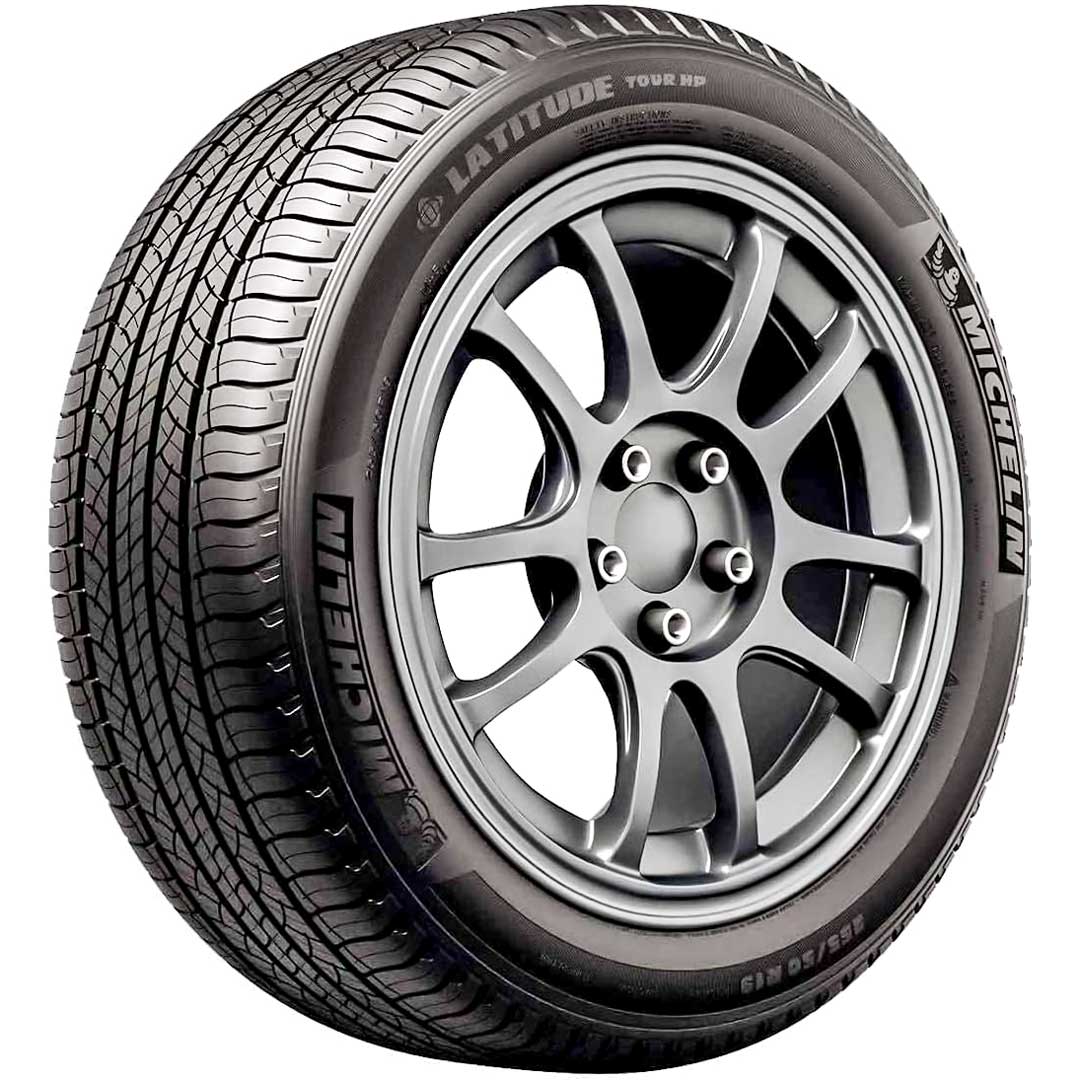
The Michelin Latitude Tour HP ZP tire is used as original equipment for BMW cars. It is also great for replacement tires.
It is one of the most versatile touring tires in terms of handling. It's responsive and provides excellent grip and traction. The brakes also work well. In addition, the Michelin tire can withstand dry and wet conditions and even light snow.
Pros
- Good grip, traction, and braking performance in both dry and wet conditions
- Quiet and comfortable
- Light snow works
Cons
- Does not last as long as customers expect
The Latitude Tour tires are very comfortable and don't make much noise on the highway. This is a major difference from other run-flat tires. Although not extraordinary, the treadwear warranty of 30,000 miles is very good.
Pirelli Scorpion Verde All-Season Run-Flat Tires
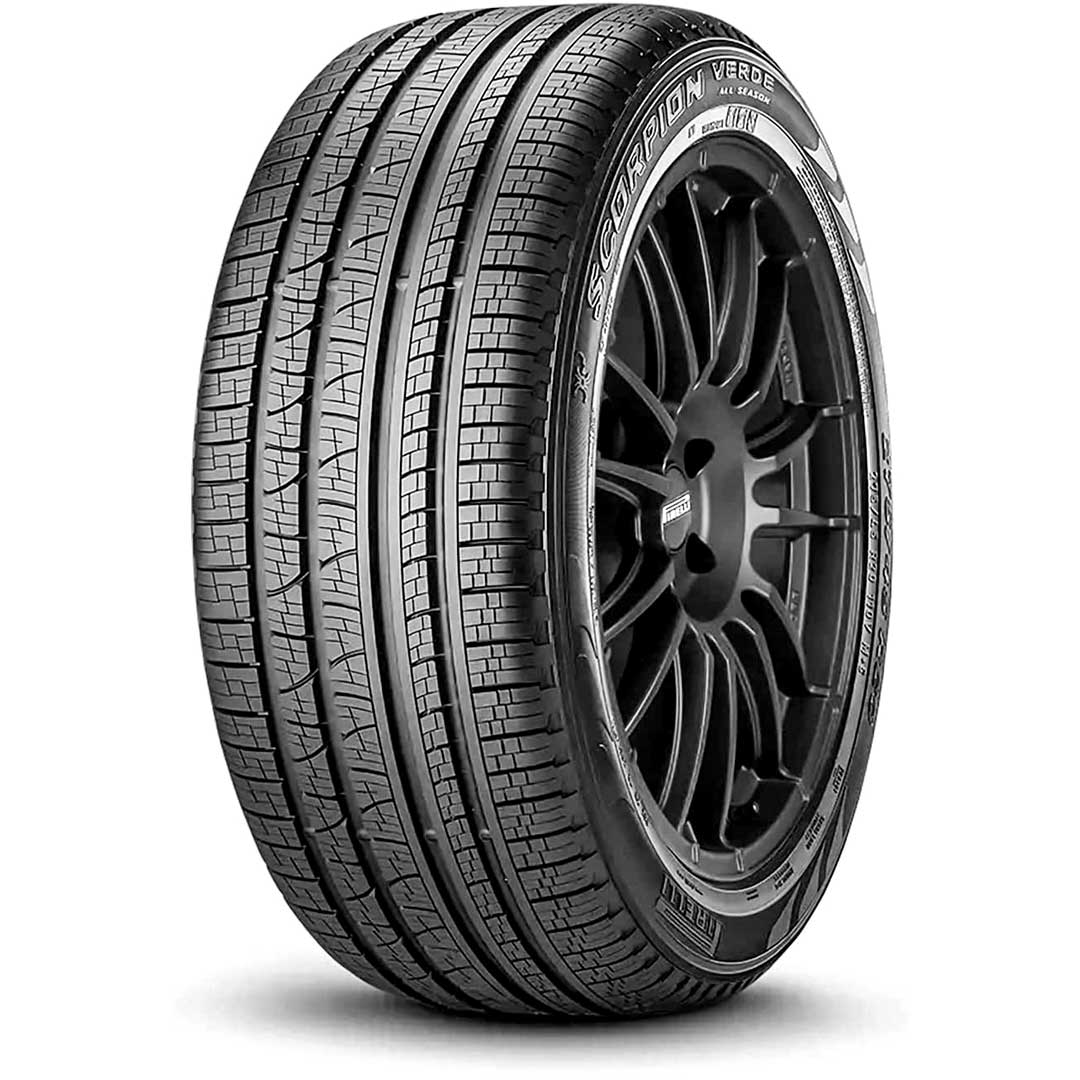
The Scorpion Verde is a touring-only tire. However, it offers enough power to offer a fun driving experience. It is currently the most responsive tire on BMW crossovers (X1, X2, X3, X3, X4, X5, and X5).
Pros
- Amazing responsiveness
- Grip as well as traction on dry and wet surfaces
- Quiet and comfortable
Cons
- No warranty for treadwear
Scorpion Verde gives the driver a lot of grips, traction, and excellent braking performance on dry and wet surfaces. However, light-snow traction is not very good. The Pirelli is very comfortable and makes little noise when driving on the highway. Unfortunately, it does not come with any treadwear warranty.
Michelin Pilot Sport S3 Plus ZP

The Pilot Sport A/S3 is possibly one of the best ultra-high-performance all-season tires on the market, if not the best. The ZP (Zero Pressure) version can be driven for up to 50 miles without pressure and is run-flat.
Pros
- Outstanding handling
- High levels of gripping and traction
- Outstanding wet performance
- Warranty on treadwear for 30,000 miles
Cons
- High prices
The Pilot Sport's responsiveness on the road makes it a great choice for drivers who want to have excellent grip, traction, and braking performance in dry conditions. Helio+ Technology covers wet performance and is class-leading. It is very quiet on the highway and has a great ride quality. The Pilot Sport A/S 3 comes with a fantastic 30,000-mile treadwear guarantee.
Goodyear Eagle F1 Asymmetric 3 Run on-Flat
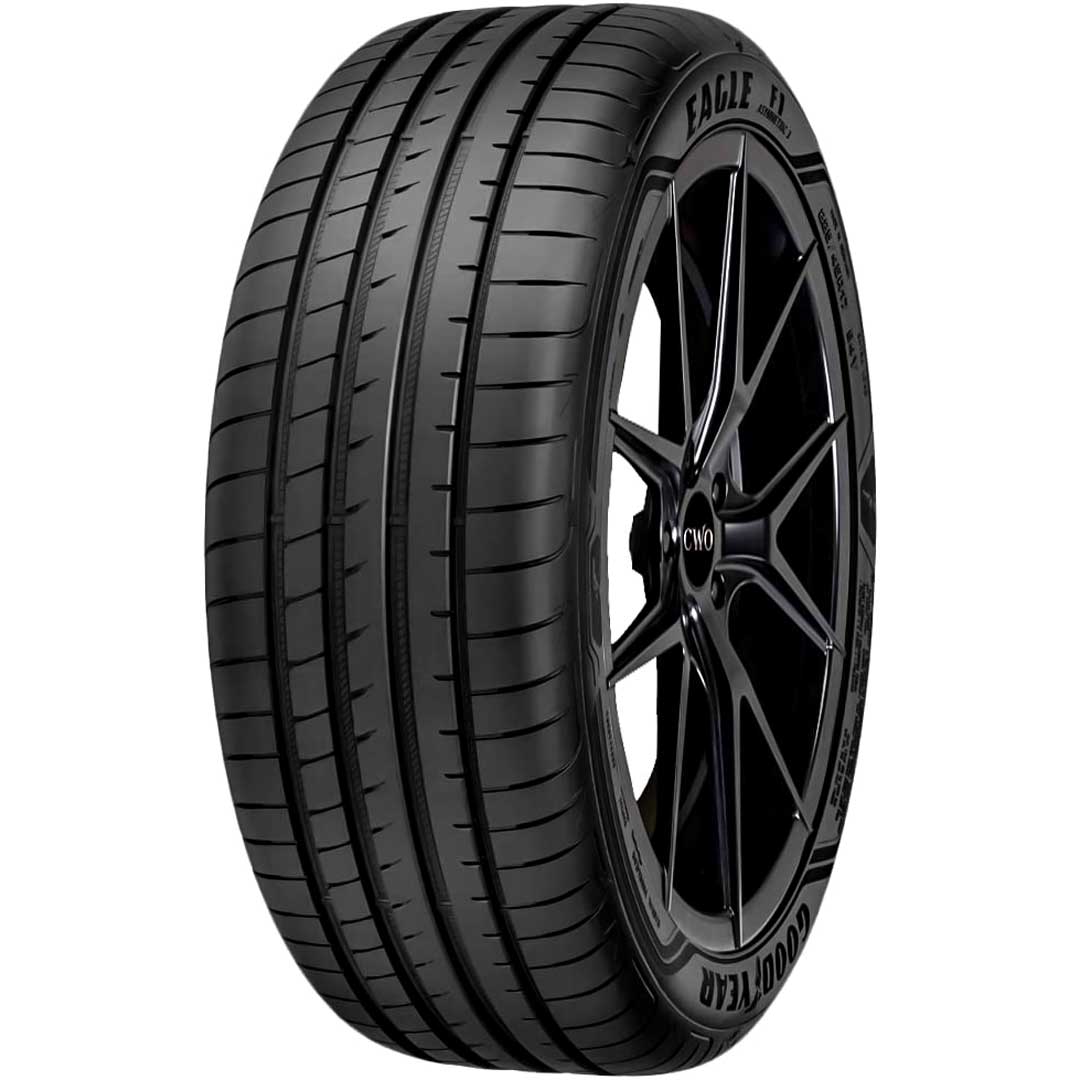
The Eagle F1Asymmetric 3 max-performance tire is the best for BMW drivers who drive fast BMW sedans and coupes. The tire offers a unique driving experience unlike any other. It is extremely responsive, grip and traction feel like a racing tire, and the braking is amazing.
Pros
- Amazing responsiveness
- Extremely high levels of grip and traction
- Outstanding braking
- Perfect for M-badged BMWs
Cons
- Wet performance is slightly worse
We were surprised that Goodyear is quieter on the road than we expected. Although wet performance is slightly less than normal, particularly in heavy rain, this is to be expected from a max-performance tire. The Eagle F1 is not suitable for use in winter conditions.
Bridgestone Dueler H/P Sport RF
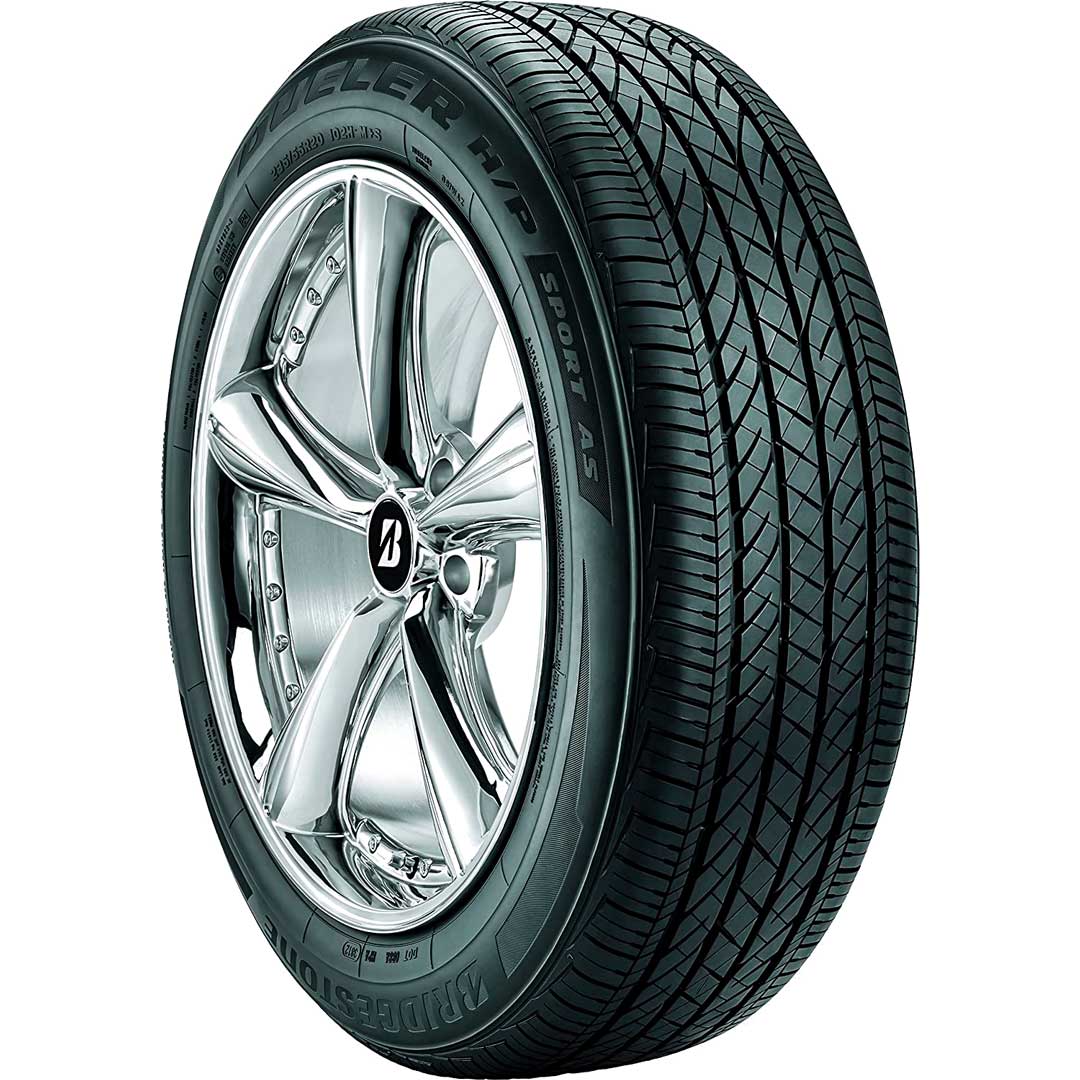
The Dueler H/P Sport FFT is the most popular tire for BMW X-Drive crossovers with large wheels and powerful engines. Bridgestone tires are very responsive and can offer excellent grip and traction even on heavier BMWs. Wet performance is excellent, and there were no noise issues.
Pros
- High levels of gripping and traction
- Excellent responsiveness
- You can be quiet on the roads
Cons
- No warranty for treadwear
Unfortunately, Bridgestone does not offer a treadwear warranty for this tire. This is disappointing.
Bridgestone Blizzak LM-25 RFT
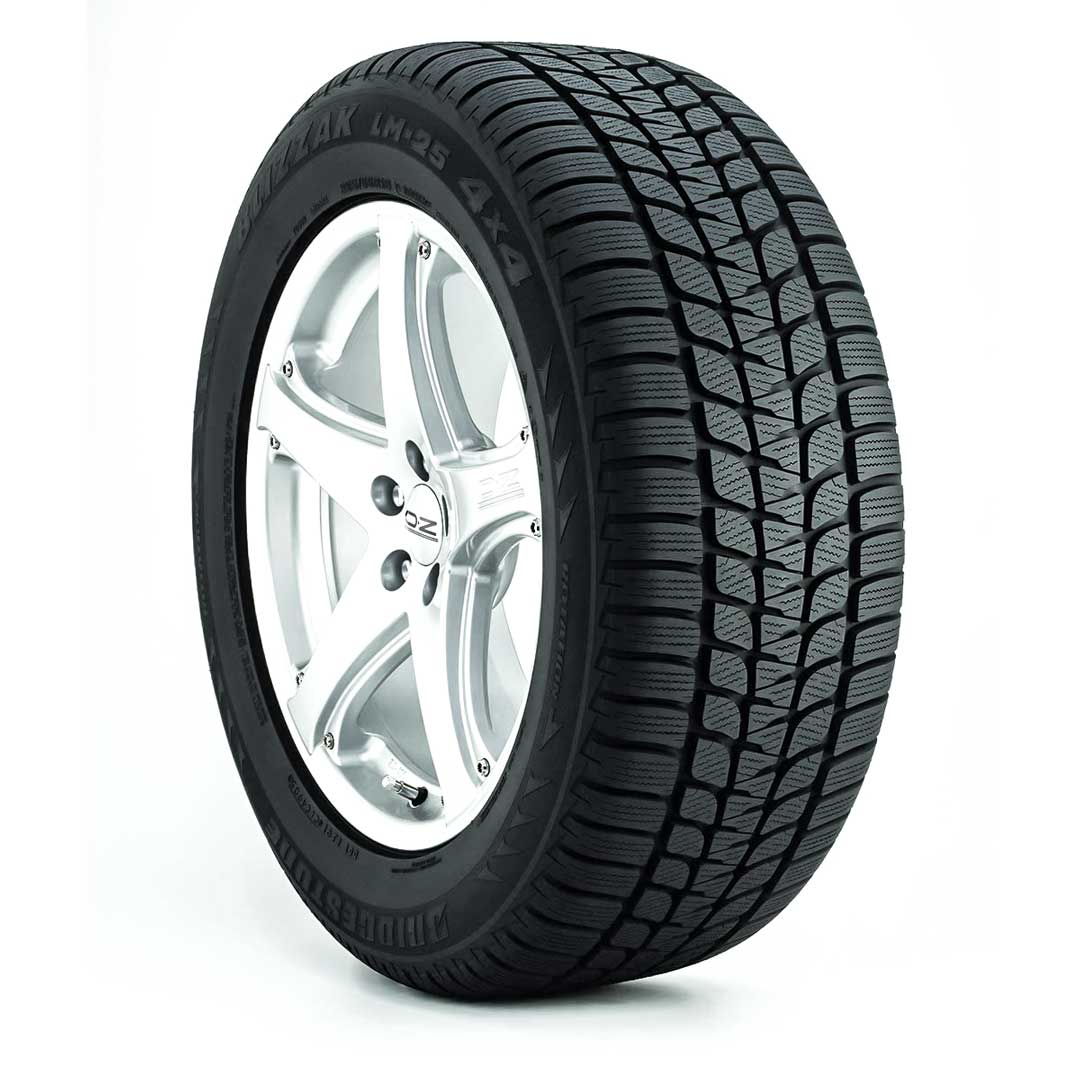
This flat tire is made for BMW performance cars and is the best. The Blizzak LM-25 winter tire performs well, even in heavy driving conditions. The Blizzak LM-25 is a top-notch snow tire. It has excellent responsiveness, grip, traction, and braking. The Blizzak snow tire is top-of-the-line in its class. Unfortunately, this tire does not come with a treadwear warranty.
Pros
- Excellent handling in winter conditions
- Both dry and wet pavements are compatible
- Great on snow and ice
Cons
- No warranty for treadwear
Pirelli Winter Sottozero Serie II Run Flat

This is the latest addition to the Sottozero Pirelli winter tire family and a great choice for BMW drivers. This tire is the most sporty for winter. It handles well on both dry and wet asphalt and is responsive. The Pirelli can even be used on ice, with excellent snow traction and braking. The Pirelli Sottozero has no treadwear warranty, just like the Bridgestone Blizzak.
Pros
- Sporty handling during winter
- Tire very responsive
- Both dry and wet pavements are compatible
- Great on snow and ice
Cons
- No warranty for treadwear
Guide to Buying Flat Tires of the Best Run
Grand-Touring Run Flat Tires Are the Best Option for Smaller BMW Vehicles
If you drive a BMW 1-Series or 3-Series, you will likely need grand-touring tires. These tires are designed to provide a balanced driving experience for models that don't have a lot of power but still provide an enjoyable driving experience. Grand-touring tires can be a bit more expensive than touring tires. They are designed for smaller sedans, small cars, and compact vehicles. Grand-touring tires may be a better option for BMW owners.
Grand-touring tires have a great tread life. Many of the best tires in this category come with a 70,000-mile treadwear warranty. This means you can use them for up to six seasons without replacing them. In addition, grand-touring tires can be very quiet and comfortable even when they are run-flat. So they are great if you drive your BMW or take long road trips with them.
Grand-touring tires offer adequate performance for most drivers. Although they don't provide the most enjoyable driving experience, they can be driven hard under most conditions. Because of their exceptional hydroplaning resistance, grand-touring tires can also be used in heavy rain. In addition, all-season grand-touring tires can provide traction in light snow. This is an additional advantage.
These tires will not work well with more powerful BMW 1-Series and 3-Series models. These tires lack the sharpness, traction, and grip required for driving fast in corners.
Crossover/SUV Touring BMW tires
These crossover/SUV touring tires look similar to grand-touring tires but are made for SUVs and crossovers. Although these tires are compatible with the BMW X1, X2, X3, X4, X5, and X5 models, they may not be as powerful. You will need to use different tires if you have turbocharged inline-6 models or, worse, the M-models.
Crossover and SUV touring tires are durable, just like grand-touring tires. They have treadwear warranties lasting from 60,000 to 80,000 miles, depending on which model. They are quiet, comfortable, and offer enough traction, grip, and braking power to handle most driving conditions. Touring tires are not the best option for performance driving. However, they are not available in sizes appropriate for BMW SUVs and BMW crossovers.
High-Performance tires for sporty BMW models and M versions
BMW does not offer run-flat tires on all their performance models. However, most still have this technology. High-performance tires are made specifically for performance cars. These tires are designed to provide superior performance and comfort.
High-performance tires have a higher response than grand-touring tires. The car turns as soon as you turn the wheel. High-performance tires have better traction on larger cars, better corner grip, and better braking performance. These tires offer the most enjoyable driving experience of any type.
Ultra-high-performance tires and max-performance tires have a stronger compound than high-performance tires. For “M” cars, we recommend ultra-high-performance tires if you mostly drive on the street or max-performance tires if you use your BMW sports car on track days.
Performance tires will have a shorter warranty than grand-touring tires. High-performance tires are good in this regard, with some models getting even to 60,000-miles warranty, but ultra-high-performance tires (40,000-miles) and max-performance tires (no treadwear warranty) are much worse.
Due to their stiffer sidewalls, performance tires have a worse ride quality than grand touring tires and make more noise at higher speeds. They are also more expensive than grand touring tires. A sports car is expensive.
Street/Sport Tires are the best choice for performance BMW Crossovers
Being one of the few manufacturers that makes sporty crossovers, BMW makes some of them even with the “M” badge or an actual M models such as X3M, X4M, X5M, X6M. Street/Sport tires are required if you own one of these vehicles. These tires are designed specifically for fast crossovers. They are very similar to high-performance tires. These tires are more responsive than the Crossover/SUV Touring tires but have a worse ride quality and make more noise on highways.
These tires are the best in their class, with excellent braking performance and traction. But unfortunately, they are usually very large (over 18 inches) and expensive.
Weather aspect with tires
This is a crucial aspect of choosing the right set of tires. The rubber compound used in tires is designed to work in a specific temperature range. Too cold, the tire will become hardened and brittle, and it will not be able to grip the road. The tire will become too soft and unresponsive if it heats up too much. It is important to choose the right set of tires for your region.
All-season tires are best for most people. These tires can be used in all temperatures and last for most of the year. These tires are excellent in all seasons, including spring, summer, autumn, and spring. Some of them can even be used in snowy conditions. All-weather tires are made for winter conditions, an upgraded version of all-season tires. They are also more effective in the snow. In addition, all-season and all-weather tires perform well in heavy rain due to their outstanding resistance to hydroplaning.
As their name implies, winter tires are made for winter driving. These tires have a rubber compound that is more flexible and soft in cold conditions. This provides excellent traction, grip, and braking performance. Thanks to their deeper tread and many sipes within the tread blocks, winter tires can withstand heavy snow loads, whether packed or unpacked. These tires are ideal for those who live in areas that receive a lot of snow in winter.
The summer tires are designed to provide the best performance during the summer. Summer tires offer better grip and braking performance than all-season tires in warmer climates. As a result, they stick to the road better. Most ultra-high-performance and max-performance tires are also summer tires simply because they provide the driver with the best possible handling on faster-performance vehicles.
Sure, there are some all-season ultra-high-performance tires, but they pale in comparison to summer tires. It's enough to say that if you have an “M” vehicle, high-performance summer tires would be preferred in the summer, and high-performance winter tires during the winter.
Best Run-Flats for BMW Conclusion
You can see that we only included high-quality run-flat tires in the above list. This is because cheap tires will not provide the handling you want for your BMW. However, they are also unsafe in wet conditions. Therefore, high-quality tires are essential for a great driving experience with your BMW. When choosing tires, it is important to get the ones with enough data to back up their performance in different conditions.
I went with Bridgestone Driveguard because I have put on a lot of miles on mine and have only good things to say about them. Well, besides me catching a bubble on the tire and having to go through a lot of tire inflator reviews to keep them aired up at all of the times. However, damage like that cannot be prevented, especially if you live in places like Michigan where roads are like minefields.


